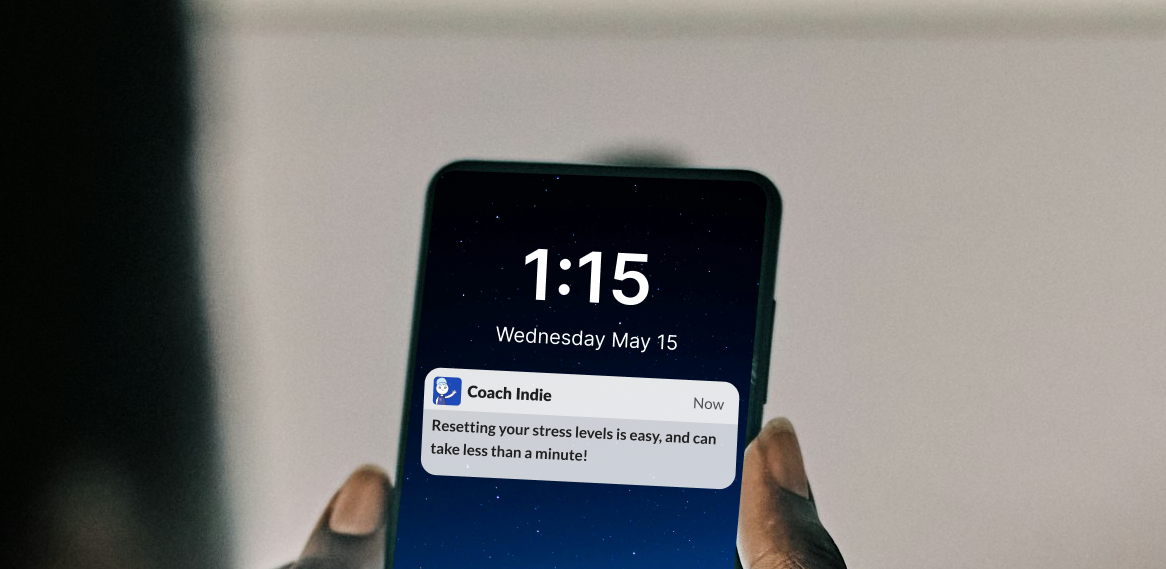It’s no secret that stress is a problem in the workforce. It affects morale, physical and mental wellbeing, productivity - and often leads people straight to the door. In fact, 95% of HR leaders say stress is sabotaging workforce retention. And it’s costing businesses up to $400,000 per exit.
But people don’t quit jobs, they quit bosses - for leaders have a profound effect on the wellbeing of their people. With this responsibility comes a fantastic opportunity to create a culture where your people can be and do their best. And it starts with reducing stress.
Today, we’re sharing 21 quick tips to help you reduce stress in your team so they feel happy, healthy, and empowered to stick around and do their best work.
21 ways to reduce team stress

1. Laugh together
Laughter, chatting and eating together can help a team bond. This can lead to better discussions, more creative ideas and a happier, more productive place to work.
2. Plan recovery time
Allow time to recover after heightened periods of stress (e.g. project completion deadlines) and remember to congratulate the team as well!
3. Set clear expectations
Communicate effectively to ensure all team members are clear on expectations to reduce stress and better optimise time.
4. Add some colour
Put some colour and plants around the office to brighten the mood and get people smiling.
5. Smile!
Don’t be afraid to smile and laugh around the office, and inject a bit of humour into the everyday.
6. Maintain an open dialogue
Talk with your team in an open and safe way to identify, and potentially address, the source of their stress.
7. Check on your team
If your team isn’t saying much, start with open questions about how everyone is going. (Use Indie to check your team’s Stress and Wellness trends)
8. Be flexible
Talk to your team about flexible work options. This can be helpful for everyone, particularly those with long commutes and caring responsibilities.

9. Look out for signs of stress
Identify activities, tasks and processes that cause significant team stress, and try changing it up during stressful periods.
10. Equip your team for success
Give your team the tools, flexibility and trust they need to do their best work, and they will do their best work.
11. Prioritise
Rank ideas or projects in order of importance to better focus your team’s time and energy.
12. Go beyond, “Good job!”
Praise your team with specific feedback to help them feel genuinely valued.
13. Do little things that make a big difference
Send a handwritten note, write a quick email, or make a call of encouragement. Even little things can make a big impact and show the team you care about them as people.
14. Create new opportunities
Reward your team with new opportunities like a highly visible project, promotions, mentorship programs, or pay for a workshop or conference.
15. Live your values
Create and communicate clear guiding principles that reflect your personal values, and live those values. This will speak louder than any motivational words posted on the walls, and help create a culture of trust in your team.
16. Develop team skills
Provide access to courses, create individual development plans, provide performance metrics, create opportunities outside of job functions, and provide constructive feedback.
17. Give toxic employees the boot
Toxic team members damage team morale, sabotage others, and can cost your business twice as much as a top performer improves it. Move them on, and create a team that lifts each other up - together.
18. Schedule a weekly “Untouchable Day”
Have a day each week without meetings so your team can get into a deep focus without interruptions.
19. Take items off everyone’s to-do list
Feeling like there’s too much to do and not enough time to do it leads to burnout. If a task is not important, lighten the load.

20. Talk about (and celebrate) failures
Create a culture where failures aren’t punished - but explored to understand and learn from together.
21. Encourage down time
Let your team know it’s ok to step away for a walk or the like, and encourage more consistent breaks to help them feel refreshed.






